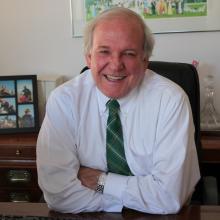public theology
Future Soul
Virtuoso keyboardist Cory Henry’s 2020 album Something to Say encapsulates a trying year—traversing elation and sorrow. He brings Herbie Hancock-worthy skill and range to what he calls “future soul.” Featuring the Funk Apostles on four tracks, this self-produced project is required listening. Henry House Entertainment.
A Divine Puzzle
Author and public theologian Grace Ji-Sun Kim’s essays read as meditations in her newest book, Hope in Disarray: Piecing Our Lives Together in Faith. Sifting through today’s complex array of personal and societal injustices, Kim approaches readers with the gift of generative hope. The Pilgrim Press.
The two major streams of Christian engagement on war are pacifism and just war theory, which comes out of Catholic social teaching. The pacifist response to Syria strikes is clearly opposed. As for the just war analysis, it takes a little explaining, but reaches the same conclusion.
“Public theology is the way in which faith professes action in the public square,” explained Mike McCurry.
This idea — that there is a connection between your spiritual faith and what you do in politics — is an underlying theme in McCurry’s journey from press secretary for former President Bill Clinton to joining the faculty at Wesley Theological Seminary in Washington, D.C., as professor of public theology.
OUR LIFE TOGETHER can be better. Ours is a shallow and selfish age, and we are in need of conversion—from looking out just for ourselves to also looking out for one another. It's time to hear and heed a call to a different way of life, to reclaim a very old idea called the common good. Jesus issued that call and announced the kingdom of God—a new order of living in sharp contrast to all the political and religious kingdoms of the world. That better way of life was meant to benefit not only his followers but everybody else too. And that is the point of it.
Christianity is not a religion that gives some people a ticket to heaven and makes them judgmental of all others. Rather, it's a call to a relationship that changes all our other relationships. Jesus told us a new relationship with God also brings us into a new relationship with our neighbor, especially with the most vulnerable of this world, and even with our enemies. But we don't always hear that from the churches. This call to love our neighbor is the foundation for reestablishing and reclaiming the common good, which has fallen into cultural and political—and even religious—neglect.
Judaism, of course, agrees that our relationship with God is supposed to change all our other relationships, and Jesus' recitation of the law's great commandments to love God and your neighbor flows right out of the books of Deuteronomy and Leviticus (see Deuteronomy 6:5; Leviticus 19:18). Islam also connects the love of Allah with love and responsibility to our neighbors. In fact, virtually all the world's major religions say that you cannot separate your love for God from your love for your neighbor, your brothers and sisters. Even the nonreligious will affirm the idea of "the Golden Rule": "Do to others as you would have them do to you" (Luke 6:31).


